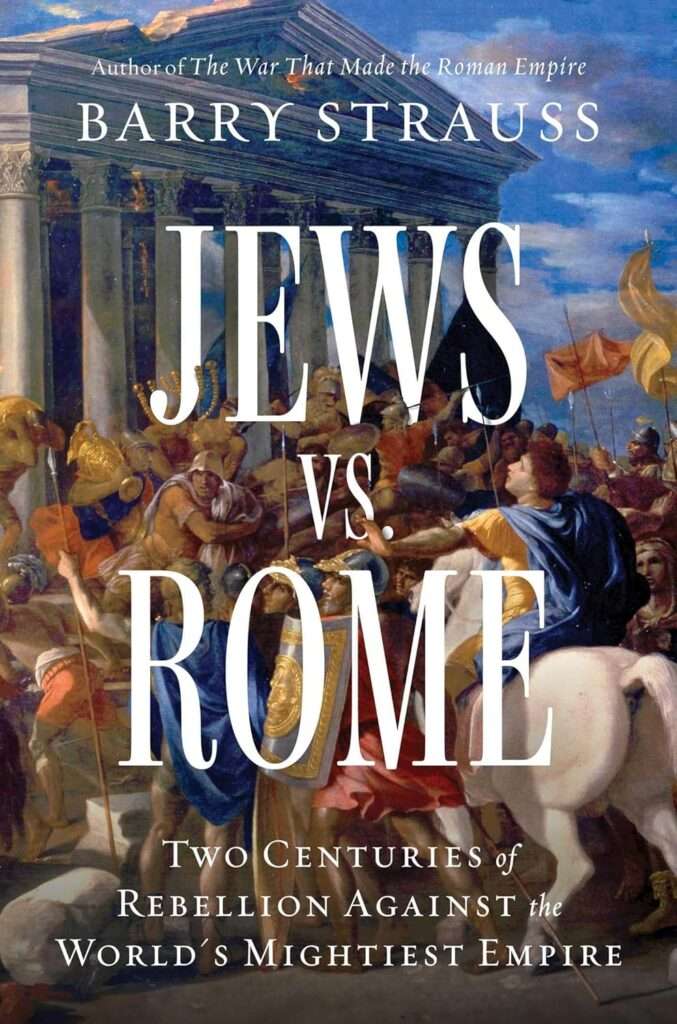
I recently flew to Israel on El Al, Israel's national airline. I was on my way to teach a summer course at Shalem College and to give a public lecture at the Menachem Begin Center on my new book, Jews vs. Rome: Two Centuries of Rebellion Against the World's Mightiest Empire (Simon & Schuster, 2025). I was surprised to discover that among the movie choices there was a Clint Eastwood retrospective. On reflection, it doesn't seem surprising.
As far as I know, Eastwood is not a public advocate of Israel although he may support it privately. The former Israeli consul general in the USA, Ido Aharoni Aronoff, reported in 2015 that Eastwood told him that "I am a big supporter of Israel." Aronoff posted a picture of the two of them together.
But the issue is less what Eastwood says than what he and his films represent. I googled "Clint Eastwood" and "Israel" after I landed and discovered that a blogger named Sebastian Wright had noticed an affinity. A few months ago he wrote that "Eastwood's works touch upon themes that resonate deeply with Israeli culture," namely "moral dilemmas, the complexities of war, and the quest for justice."
I would add that both Eastwood movies and Israeli life take place in tough neighborhoods. "Mystic River," for instance, the 2003-Oscar-winning neo-noir that I watched on the flight, is set in a hardscrabble part of Boston. It's a world of violence and family bonds where law enforcement must struggle to prevail.
Israel is in the Middle East, one of the world's most volatile regions. It has the battle scars to prove it. It has fought major wars in virtually every decade since the state's founding in 1948 and its security is a constant concern. The current war against Hamas in Gaza, which began with Hamas's attack on October 7, 2023, has gone on for nearly two years. Part of the time Israel has also fought in Iran, Lebanon, Syria, and Yemen. There have been rocket and missile attacks on civilian as well as military targets from Gaza and Iran. Attacks continue even now from the Houthis in Yemen. I should know, as I was in one. No one was hurt, fortunately.
Israel is a small state most of whose rivals far outnumber it in size and population. Israel has a population of 10 million. Iran, for example, has a population of 92 million. Egypt, with which Israel enjoys a cold peace, has a population of nearly 120 million.
Little Israel lives in a world of great powers. 'Twas ever thus. In the Cold War, Israel was caught between the Americans and the Soviets. Today, it deals with America, on the one hand, and Iran, on the other, with Turkey (population 87 million) possibly emerging as another rival. Nor are relations with China, the EU, India, or Russia insignificant to Israel. As I demonstrate in my book, ancient Israel in the era of the revolts against Rome (63 BCE – 136 CE) was balanced between a great empire in the west, Rome, and another great empire in the east, Parthia, an ancient Iranian realm that stretched from Syria to today's Turkmenistan. At that time Israel was called Judea. Unlike in today's period of deadly Iranian hostility to the Jewish state, Parthia enjoyed good relations with Judea.
Jewish rebels against Rome tried to enlist Parthian aid. In the end, it never amounted to much. Parthia, like all empires, had its priorities. Making trouble for its rival empire, Rome, was high on its list. Fighting to establish an independent Jewish state was not. Still, as I explain in the book, a surprising degree of cooperation and coordination between Jewish rebels and segments of Parthian society, if not the king himself, marked the era.
Students of history are familiar with the role of Italy in the affairs of Judea. They are less likely to think of the ancient equivalents of today's Armenia, Iraqi Kurdistan, or Libya as players in Judea's history, but they were. Geostrategy casts a long and crooked shadow on what might seem to be a simple story.
The Middle East was and is a dangerous neighborhood and a place of moral ambiguity. In the period that I studied men and women changed sides not, they said, to save their skins, but to protect their country in a time of shifting balance of power. Religion fueled patriotism but also fed fantasy. History rarely presented easy choices then, nor does it do so today.
Clint Eastwood's world is indeed one that Israelis can understand.
The post Clint Eastwood, Tough Neighborhoods, and Israel appeared first on Reason.com.













 Bengali (Bangladesh) ·
Bengali (Bangladesh) ·  English (United States) ·
English (United States) ·